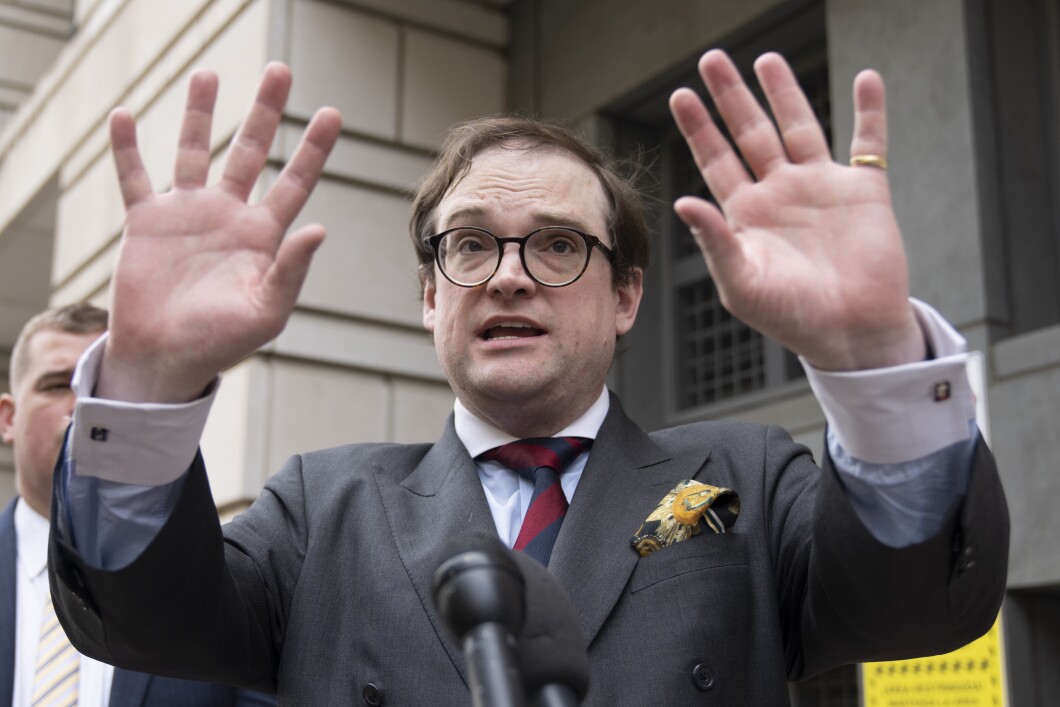
A U.S. attorney fighting to shield records related to Prince Harry‘s U.S. visa approval made a striking admission in federal court this week, arguing the standards for expediting information requests must “show articles from mainstream publications.”
A hearing in U.S. District Court for the District of Columbia was held Tuesday regarding the conservative Heritage Foundation’s Freedom of Information Act request from Department of Homeland Security authorities over whether Harry received preferential treatment from the U.S. government, citing Harry’s recent admission to past illegal drug usage.
GAS PRICES TODAY: WHERE TO FIND THE CHEAPEST FUEL ACROSS THE COUNTRY
U.S. Judge Carl Nichols gave the DHS until June 13 to determine whether or not it will expedite or respond to a request for the records.
But earlier in the hearing, Nichols prompted an eye-raising admission from Assistant U.S. Attorney John Bardo when the judge asked which requirements are needed by the agency to “establish entitlement under the regulation to expedition.”
“They would have to show articles from mainstream publications, like the Washington Post, the Wall Street Journal, the New York Times, the television networks, the types of publications that have been identified in the cases where expedited processing has been granted,” Bardo said.
When asked by the judge where DHS deduces that standard, Bardo said he derives it by “reading the cases where [courts] have ruled on this issue.”
Nichols pressed Bardo on whether the past cases suggest that citing mainstream outlets is “necessary” or if doing so is merely “sufficient?”
“They don’t say that,” Bardo replied before suggesting “a Russian troll farm could make up articles, and that obviously you couldn’t say is sufficient for widespread media attention.”

An attorney representing the Heritage Foundation, Samuel Dewey, argued Bardo’s reasoning does not align with the DHS regulation surrounding expedited requests.
“The [DHS] regulation says ‘media.’ It doesn’t say ‘American media’ or ‘mainstream media,'” Dewey told Nichols, later mentioning a report from the Daily Mail that cited attorneys warning Harry’s past drug use could jeopardize his visa status.
Heritage Foundation’s brief also cites a January report from the Telegraph, citing the director of George Washington University’s Immigration Clinic.
“[Harry] would have been asked about drug use. If he was truthful in his answers, he should have been denied, period,” GWU professor Alberto Benitez said at the time.
The outcome of the hearing on Tuesday was procedural but significant in that Nichols handed a small favor over to the Heritage Foundation by ordering the DHS to respond to one of the group’s outstanding requests.
Heritage Foundation argues Harry’s public admission of past drug use and the media attention surrounding it creates a sufficient public interest for the DHS to comply with its FOIA request.
CLICK HERE TO READ MORE FROM THE WASHINGTON EXAMINER
This case is about “whether DHS complied with the law,” Dewey said on Tuesday.
The Washington Examiner contacted the U.S. Attorney’s Office and the DHS for comment.




